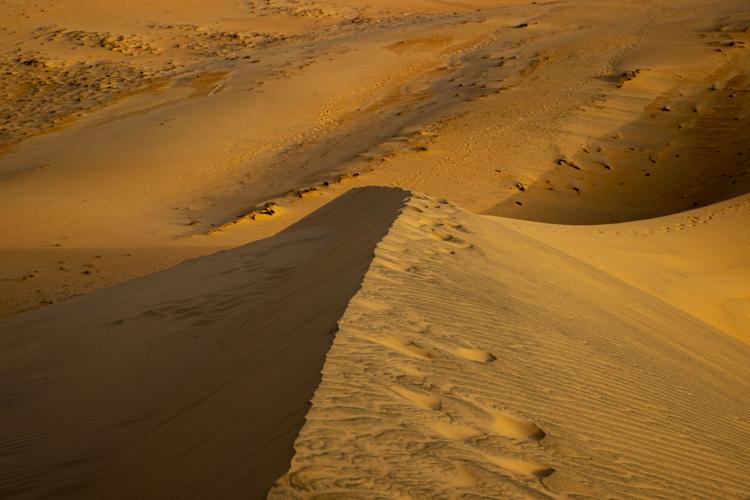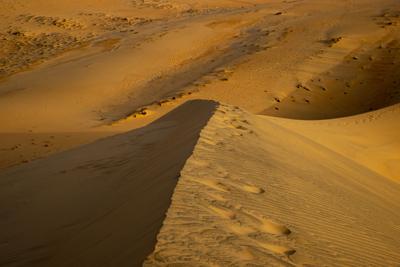1. Saharan dust is a hurricane switch.
When clouds of dust billow off West Africa, they form what meteorologists call the Saharan Air Layer. This layer floats at altitudes between 5,000 and 15,000 feet. If the layer is dense enough, it can smother a young tropical storm like a blanket on a fire.
2. It's fertilizer.
Some of the dust is rich in iron and phosphorus, so when it lands in the ocean, it acts like a fertilizer for phytoplankton.
How important is phytoplankton? These microscopic jewel-like organisms produce half of the oxygen we breathe.
3. Dust can lower our air quality.
The Sahara hoists so much dust into the skies that some of it ends up in the southeastern United States. Its particles are so fine they can enter your bloodstream and trigger asthma and allergies.

Myrtle Beach Pelicans' Grant Kipp (57) winds up to pitch as the sun sets behind the stadium at a Charleston RiverDogs game against the Myrtle Beach Pelicans at Riley Park in Charleston on Tuesday, September 13, 2022. File/Henry Taylor/Staff
4. It changes the look of our skies.
It makes our skies a sickly white during the day as it scatters the sunlight.
But it gives our sunsets beautiful orange hues.
For more on Saharan dust, visit The Saharan Connection.

Patterns are made in a desert sand dune in Lompoul, Senegal. Andrew J. Whitaker/Staff












